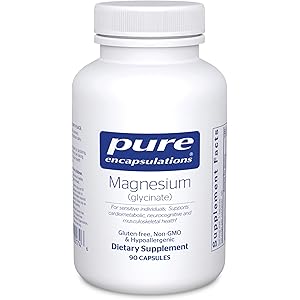Physician's CHOICE Probiotics for Women - PH Balance, Digestive, UT, & Feminine Health - 50 Billion CFU - 6 Unique Strains for Her - Organic Prebiotics, Cranberry Extract+ - Women Probiotic - 30 CT
$23.97 (as of October 27, 2025 06:27 GMT +00:00 - More infoProduct prices and availability are accurate as of the date/time indicated and are subject to change. Any price and availability information displayed on [relevant Amazon Site(s), as applicable] at the time of purchase will apply to the purchase of this product.)Understanding Post-Menopause and Dietary Needs
Post-menopause is a significant phase in a woman’s life, marked by the cessation of menstrual cycles and a shift in hormonal balance. This transition can lead to various health challenges, making it crucial to understand how to manage diet for post-menopausal women. A well-balanced diet can help mitigate symptoms such as weight gain, osteoporosis, and heart disease, which are often exacerbated during this period. Women should focus on nutrient-dense foods that support overall health and well-being.
Importance of Calcium and Vitamin D
One of the primary dietary concerns for post-menopausal women is the increased risk of osteoporosis due to decreased estrogen levels. Calcium and vitamin D are essential for maintaining bone health. Women should aim for at least 1,200 mg of calcium daily, which can be obtained from dairy products, leafy greens, and fortified foods. Additionally, vitamin D, which aids calcium absorption, can be sourced from sunlight exposure, fatty fish, and fortified foods. Supplements may also be necessary, especially in regions with limited sunlight.
Incorporating Phytoestrogens
Phytoestrogens are plant-derived compounds that mimic estrogen in the body and can be beneficial for post-menopausal women. Foods rich in phytoestrogens, such as soy products, flaxseeds, and whole grains, can help alleviate some menopausal symptoms like hot flashes. Including these foods in the diet may provide a natural way to balance hormones and improve overall health during this transitional phase.
Emphasizing Healthy Fats
Healthy fats play a crucial role in a balanced diet for post-menopausal women. Omega-3 fatty acids, found in fatty fish, walnuts, and flaxseeds, are known for their anti-inflammatory properties and heart health benefits. These fats can help reduce the risk of cardiovascular diseases, which are more prevalent in post-menopausal women. It’s essential to limit saturated and trans fats, which can contribute to weight gain and other health issues.
Managing Weight Through Balanced Nutrition
Weight management becomes increasingly important for post-menopausal women, as hormonal changes can lead to weight gain, particularly around the abdomen. To manage diet for post-menopausal women effectively, it’s vital to focus on portion control and balanced meals that include a variety of food groups. Incorporating plenty of fruits, vegetables, lean proteins, and whole grains can help maintain a healthy weight and provide essential nutrients.
Hydration and Its Role in Health
Staying hydrated is often overlooked but is essential for overall health, especially for post-menopausal women. Adequate hydration supports digestion, skin health, and can even help manage weight. Women should aim for at least eight glasses of water a day, adjusting for activity level and climate. Herbal teas and water-rich fruits and vegetables can also contribute to hydration needs.
Regular Meal Patterns and Snacking
Establishing regular meal patterns can help regulate metabolism and prevent overeating. For post-menopausal women, it’s beneficial to have three balanced meals a day, complemented by healthy snacks if needed. Snacks should be nutrient-dense, such as nuts, yogurt, or fruit, to provide sustained energy and prevent blood sugar spikes. This approach can help manage cravings and maintain energy levels throughout the day.
Consulting with Healthcare Professionals
Every woman’s body is different, and dietary needs can vary significantly during the post-menopausal phase. Consulting with healthcare professionals, such as registered dietitians or nutritionists, can provide personalized dietary advice tailored to individual health needs and goals. They can help create a balanced meal plan that addresses specific concerns, such as weight management, bone health, and heart health.
Physical Activity and Its Dietary Implications
Incorporating regular physical activity is vital for post-menopausal women, as it complements dietary efforts to maintain a healthy weight and improve overall health. Exercise can help strengthen bones, improve mood, and enhance cardiovascular health. Women should aim for a mix of aerobic, strength-training, and flexibility exercises. A well-rounded fitness routine, combined with a balanced diet, can significantly impact health during this stage of life.
Mindful Eating Practices
Mindful eating is an effective strategy for managing diet for post-menopausal women. This practice encourages individuals to pay attention to hunger cues, savor each bite, and enjoy meals without distractions. By fostering a healthy relationship with food, women can make more conscious choices that align with their dietary goals, ultimately leading to better health outcomes and improved well-being.


